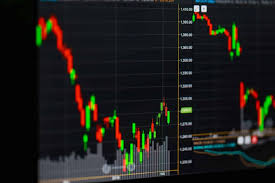
Is Forex Trading Halal or Haram? Understanding the Islamic Perspective
Forex trading, or foreign exchange trading, has gained immense popularity in recent years. With the rise of online trading platforms such as forex trading halal or haram https://trading-terminal.com/, many individuals are drawn to the potential profits in the currency markets. However, for Muslims, the question often arises: is Forex trading halal (permissible) or haram (forbidden) according to Islamic law? This article aims to explore the fundamental principles of Islamic finance, the nature of Forex trading, and the arguments surrounding its permissibility within Islam.
Understanding Islamic Finance Principles
To assess whether Forex trading is halal or haram, it’s crucial to grasp the core principles of Islamic finance. Islamic finance is governed by Sharia law, which prohibits certain practices, including:
- Riba (Usury): Any fixed or predetermined interest on loans and investments is strictly forbidden.
- Gharar (Uncertainty): Transactions with excessive uncertainty or ambiguity are prohibited.
- Maisir (Gambling): Speculative practices akin to gambling are forbidden as they involve risk without productive activity.
Islamic finance promotes ethical investing, risk sharing, and the backing of legitimate economic activities. Any financial transaction should result in a tangible, real-world economic benefit.
What is Forex Trading?

Forex trading involves buying one currency while simultaneously selling another. Traders speculate on currency price movements with the aim of making profits. The Forex market operates 24/5, allowing traders to engage at any time, making it an attractive opportunity for many.
Unlike stock trading, Forex does not involve the purchase of an ownership stake in a company but rather the exchange of currency pairs. This unique aspect has led to debates regarding its compliance with Islamic guidelines.
Arguments for Forex Trading Being Halal
Supporters of the view that Forex trading is halal present several arguments, including:
- Immediate Exchange: Islam permits currency trading if it is conducted on the spot, meaning the currencies are exchanged immediately, adhering to the teachings of the Prophet Muhammad (peace be upon him).
- Avoidance of Riba: Forex trading does not involve any interest charges or riba, provided the transactions are conducted without leverage (borrowing money). Many brokers offer Islamic accounts that comply with these guidelines.
- Legitimate Economic Activity: Currency trading can have essential implications for global trade and investments, contributing to economic growth and stability.
Arguments for Forex Trading Being Haram
On the other hand, critics argue that Forex trading is haram due to the following reasons:
- High Speculation: Critics often equate Forex trading to gambling because of its speculative nature. The high volatility and risk associated with trading can lead to significant losses.
- Gharar Concerns: The unpredictability of currency movements may lead to excessive uncertainty, making it potentially non-compliant with Islamic financial principles.
- Leverage Usage: Many Forex trades employ high leverage, which can lead to substantial losses—not unlike riba, which creates profit through the loaning of money.

The Role of Islamic Scholars
Given the complexity of Forex trading, many Muslim scholars weigh in on the issue. Their opinions often reflect differing interpretations of Sharia law and how it applies in contemporary financial contexts. Some scholars endorse Forex trading under strict conditions, emphasizing the need for ethical practices, while others categorically prohibit it due to its speculative nature.
It is advised for traders to consult with scholars who specialize in Islamic finance to ensure compliance with religious obligations. This advice can guide Muslims in making informed decisions about their trading activities.
Alternative Trading Options
For Muslims who are cautious about the halal status of Forex trading, several alternative investment options align with Islamic finance principles. These include:
- Islamic Stock Investments: Investing in publicly traded companies that operate within halal industries offers a straightforward way to engage in the market.
- Real Estate Investments: Real estate can be a lucrative investment that is compatible with Islamic principles, as it involves tangible assets and income generation.
- Sukuk: Islamic bonds known as sukuk allow investors to earn returns compliant with Sharia, providing an alternative to interest-based investments.
Conclusion
The question of whether Forex trading is halal or haram does not have a straightforward answer and largely depends on individual circumstances, trading practices, and interpretations of Islamic law. It’s crucial for Muslim traders to conduct thorough research, seek guidance from knowledgeable scholars, and consider ethical trading practices. Ultimately, awareness and adherence to Islamic financial principles are paramount in navigating the Forex landscape while ensuring compliance with one’s faith.

Recent Comments